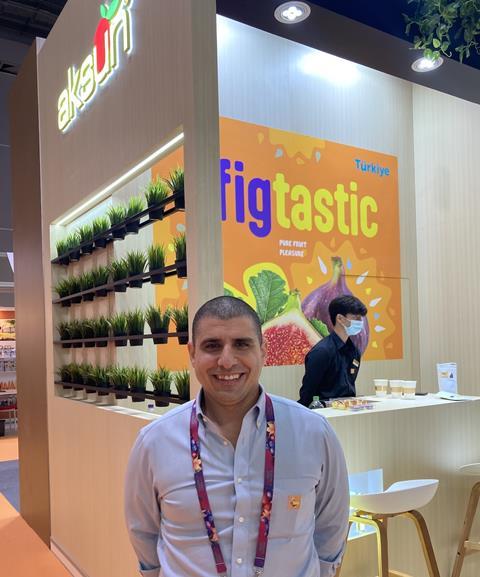Air-flown products like figs have been a hit for Turkish exporters this past season, while issues in the Red Sea and high costs continue to hamper shipments by sea
Turkish fig exporters enjoyed a good season in the Asian market this campaign, the use of airfreight for such shipments ensuring continued supplies while issues in the Red Sea continue to complicate journeys by sea.

“The fig campaign was unaffected because we always send by air,” said Akin Söyleyen of Turkish exporter Aksun. “There are a lot of direct flights from Turkey to Hong Kong. Last year there were about nine planes a week, but now it is up to 14. So we have a lot of space, and the rates are reasonable.”
However, for products like citrus, air is not an option. “The main problem that we are facing right now, especially for the East Asian market, is the Suez canal,” said Söyleyen. “The transit times are crazy right now, and we are heavily affected by that. We are especially big in Japan, and right now the transit times for Japan are pushing the limits at around 60 days. So this is hindering our operations, especially in the East Asian market.”
Asia remains one of the company’s main markets, so it remains intent on maintaining its presence. “We are trying to survive and find solutions, such as with bulk vessels,” said Söyleyen. “But we are all reliant on a peace agreement in the region, so that everything can go back to normal.”
When it comes to the European market, the company has no logistical issues, including for the UK. “We own a sister company that handles logistics for us,” said Söyleyen, “so we can do door to door deliveries, even in the UK.”
Although a shortage of South African lemons this season has been positive for Turkey, high costs mean the campaign has been a challenging one.
“We are trying to cope with excessive costs in a really difficult market this season,” said Mustafa Arslan of MDA Agro. “Unfortunately lemons have to be sold below cost, but this will change with the Lamas variety. Since the production of tangerines is low, prices are very high and we are selling at cost price. We are literally fighting to supply our customers here.”



